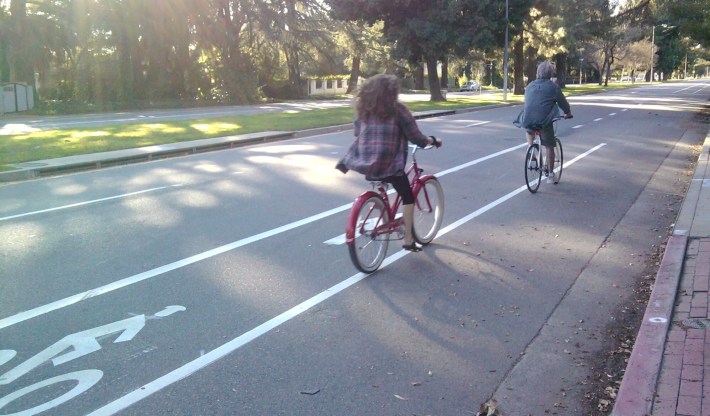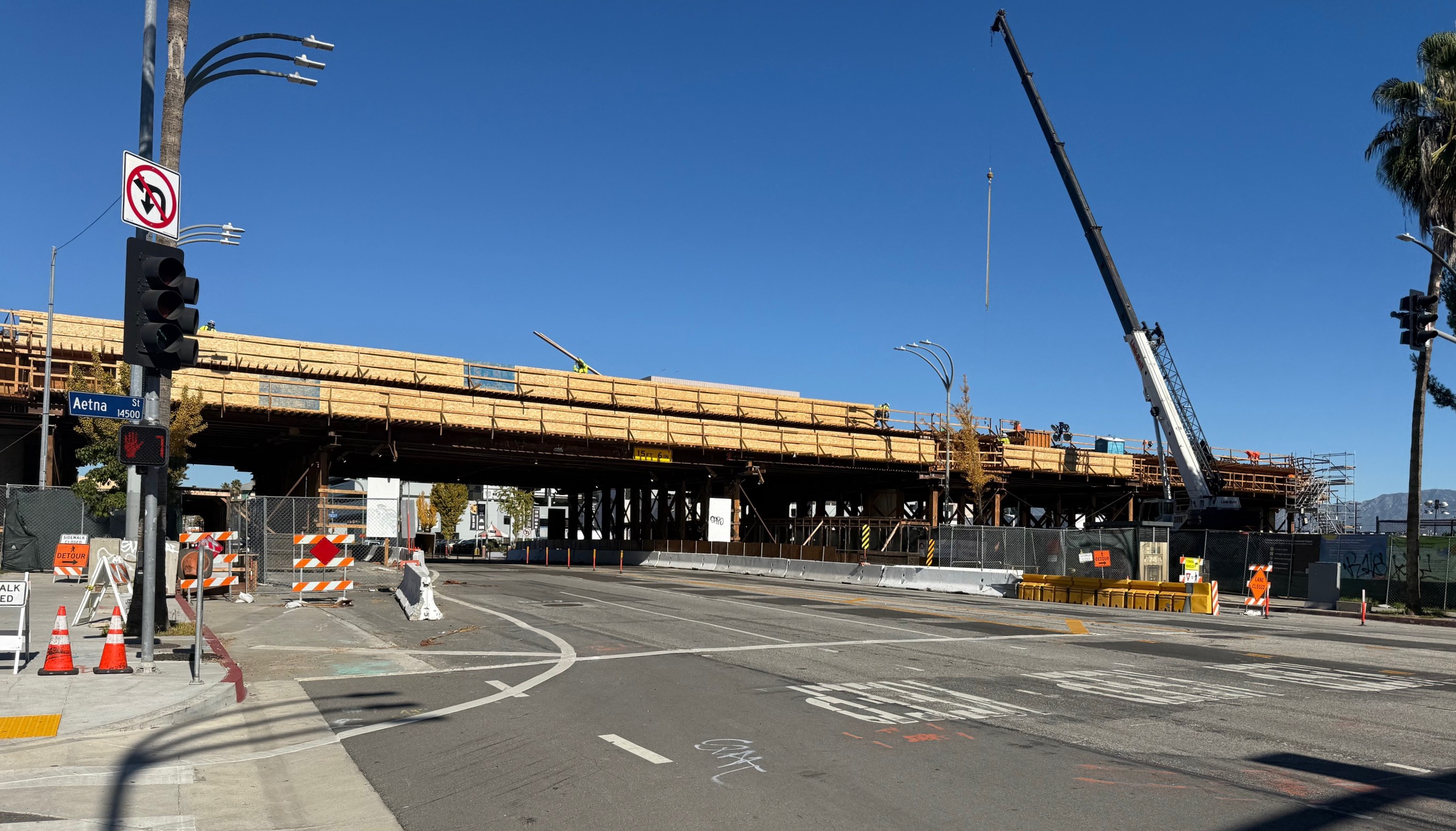
A diverse team of advocates teamed up to beat back a proposal by the LADOT and LAPD to raise speed limits on five segments of streets in the San Fernando Valley. Arguing that public outreach for the proposals had been inadequate and raising speed limits while the city is attempting to de-emphasize a dominant car culture in its planning was a great example of the left hand not knowing what the right hand is doing.
For a breakdown, and map, of the proposed changes, please visit this story previewing yesterdday's meeting written earlier this week. The proposed limit increases may come back to the Committee in ninety days after better crash data is analyzed and outreach is completed with the Los Angeles Unified School District.
"All future speed limit proposals should have a sign-on by L.A. Unified," declared City Councilman Tom LaBonge, setting a new standard to earn his support for limit increases.
While a pair of assistant general managers for LADOT sat in the audience, it was transportation manager Brian Gallagher who explained the rationale for raising the limits. Basically, state law requires that speed limits be set so that at the "prevailing speed" or "85th percentile" of drivers for the city to be allowed to use radar to enforce speed limits. All of the road segments discussed at Wednesday's meetings had been under discussion for so long that radar enforcement was no longer allowed.
While Gallagher pushed the "we have no choice" argument that has been a hallmark of the debate over limit increases, he also argued that setting limits at the prevailing speed makes the road safer. “When we set a speed limit lower than the prevailing speed,we’re more likely to have accidents,” Gallager claimed.
Gallagher based his claim on a 1992 report by the Federal Highway Administration that showed that adjusting speed limits to the speed which people drives reduce "accidents."
The Councilmen's reactions to this argument represents how much the debate has changed in City Hall. In 2009 and 2010 when limit increase proposals were common on the Transportation Committee, there was much wringing of hands and then the limits would pass. This week, Councilman Bill Rosendahl muttered that he disagreed with the two-decade old study by the FHWA and Councilman Paul Koretz blasted holes in the argument that Chandler Boulevard, located in his district, should see higher limits.
Gallagher argued that there were no conditions on Chandler Boulevard that would cause LADOT to "artificially" deflate the speed. When Koretz pushed Gallagher, noting that the stretch of Chandler in question has bike lanes, schools and Orthodox Jewish Synagogues; Gallagher responded that there wasn't a lot of "accidents" on Chandler. A flummoxed Koretz then asked, "If the stretch of road is safe, why do we want to change speed limits and change that?"
But the strongest opposition came from a parade of advocates representing the Los Angeles County Bicycle Coalition, Los Angeles Walks, The Safe Routes to Schools National Partnership, a handful of Neighborhood Councils and the Los Angeles Bicycle Advisory Committee.
Vice-Chair of the Los Angeles Bicycle Advisory Committee Glen Bailey picked apart the idea that Kester street does not have the physical characteristics that would call for a lower limit. Bailey noted that there are middle and high schools facing the street and a series of jut outs. Bailey's testimony, followed testimony by Los Angeles Walks' Deborah Murphy who argued that increasing limits to 45 miles per hour on streets with schools is going to create crashes as "school zone" limits will drop the limit by 20 miles per hour all at once.
The parade of advocates continued to poke holes in the argument that faster streets are safer streets, but the testimony that stuck with the Councilmen was Murphy's who presented a list of school officials who were not notified that the speed limits would be increased outside of their walls.
"I'm shocked that L.A. Unified wasn't part of the discussion," added LaBonge.
The proposals could come back to the Committee as soon as mid-May, but before the Committee will consider them they asked for crash data based on state SWITRS data and the approval of local LAUSD officials.






